Set in Brixton, London, this video lesson includes authentic interviews with people living in London, talking about friends.
Seven ideas on how to use this video with your class
The following lesson ideas can be used alongside the video Live from London: Friends. You can use these ideas on their own, or you could group some of the activities together and choose to do them in whichever order you prefer. Each lesson idea has a recommended learner level. The transcript is attached under ‘Related files’ at the bottom of this page.
If you’re teaching teens, you can use these videos alongside the series Impressions. This video can be used with the lesson plan ’Friends’
Some of the ideas can be used for flipped lessons. In this scenario, students can do tasks and preparatory work at home or in the school, independently from the teacher, for the following lesson. This allows more time for communicative tasks, teacher-led tasks or group-led tasks during class time.
1. Split viewing
Level: Pre-intermediate to upper intermediate
Summary: Students are divided into two groups. One group listens to the video with no visuals. The other group watches the video with no sound.
Objectives: to engage students; to promote speaking and imagination; to practice note-taking
Instructions:
Group 1
Group 2 now watch the video without any sound. They too can make notes about the places, things and people they can see. Encourage the students to think about names and general attitude of the interviewees, whether they are more or less friendly or more or less reserved in comparison to each other.
Finally watch the full video with sound and visuals.
2. Write an article
Level:
Summary:
Objectives: to encourage creative writing practice; to use descriptive language
Flipped:
Luke
Ask your students to imagine that on the day they were the reporter and they now need to write an article about their day out. The article could begin with the line ‘Last week I went out on to the streets of Brixton to interview the general public about their friends. friendly, awkward, shy, reserved, bubbly Students can write blogs or share their articles on google docs with each other.
3. Role-play
Level: Pre-intermediate to upper intermediate
Summary: Students are given roles as journalists or interviewees.
Objectives: to practise speaking; to provide fluency practice
Instructions: Divide the class into two: half the class will be journalists and the other half interviewees.
Journalists have to come up with six questions related to friendship.
Interviewees have to write notes on a friend. They have to consider their name, age, nationality, how they met, what shared interests they have, how they would describe their personality and appearance and what makes them a good friend.
Allow both groups to prepare for their interviews (approximately 10 minutes).
4. Word formation
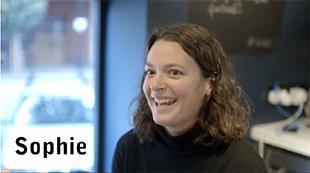
Level:
Summary: S
Objectives: to enhance vocabulary building (word formation)
Instructions: Before playing the video ask them what Rwakn says is the main quality of a good friend. loyal or loyalty Ask the students to work in small groups to make a list of other qualities. If they come up with a noun ask them to write the respective adjectives and vice versa.
You can then follow with this lesson starting from instructions in paragraph 3 of the teacher’s notes http://www.onestopenglish.com/teenagers/impressions/friends/
5. Themed discussion
Level:
Summary:
Flipped: S
Objectives: to promote
Place your students into pairs or small groups for this activity.
What does it mean to be a friend to somebody?
Why do people need friends?
Could you describe a best friend or a very good friend?
So you met at school?
What shared interests do you have?
What is the best way to make new friends?
6. Group reordering
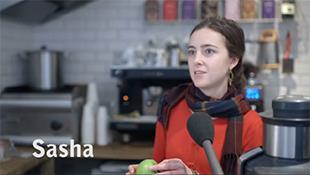
Level:
Summary:S
Objective: to listen for general understanding; to aid memory recall practice
Instructions: Print out the transcript and cut it up into small, manageable chunks to give to each student in the class. After this, hand out one piece of the transcript to each student and ask them to work as a group and arrange the transcript into the correct order. Ask the students to line up in the correct order once they think they have finished.
Finally hand out the full transcripts to check their orders again. Whilst they read the transcript ask the students to underline any language that is unfamiliar and conduct a whole-class feedback discussion boarding new language.
7. Vocabulary lesson
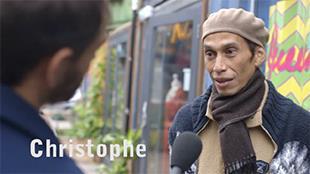
Level: Intermediate to upper intermediate
Summary: students familiarise themselves with some of the low-frequency everyday English in the video.
Objective: to enhance vocabulary building, to provide speaking practice, to help inducing meaning from context
Instructions: As the videos are authentic, unscripted interviews some of the language used by the interviewees is very natural and colloquial.
2. a friend for life
3.
Play the video and then place your students in groups to see if they can come with a definition for the new language.
re still struggling put the following definitions on the board.
a. someone who will be a friend forever
b. someone who has no bad qualities to their character
c. someone you can always rely on
d. someone who has is caring and kind
e. to be able to be genuine and comfortable being you
f. when you can rely on each other as friends
Answers: 1.c 2.a 3.d 4.b 5.e 6.f
You can then ask your students to discuss the following questions in small groups. You can write them on the board or dictate them.
has your back?
a friend for life?
have a good heart?
doesn’t have a bad bone in their body?
to be yourself with?
counted on each other?
Downloads
Click link to download and view these filesLive from London: Friends — Worksheet
Word, Size 0.12 mbLive from London: Friends — Video
Video, Size 53.23 mbLive from London: Friends — Transcript
Word, Size 0.12 mb
Live from … authentic video lessons

A series of innovative video lessons featuring authentic interviews. We went out and about in London asking members of the public a series of questions and recorded their answers. Each video comes with a set of lesson ideas plus a worksheet with a transcript of each interview for you to ...
- 1
- 2
- 3
- 4
- 5
- 6
- 7
- 8
- 9
- 10
- 11
- 12
 Currently
reading
Currently
reading
Live from London: Friends
- 14
- 15











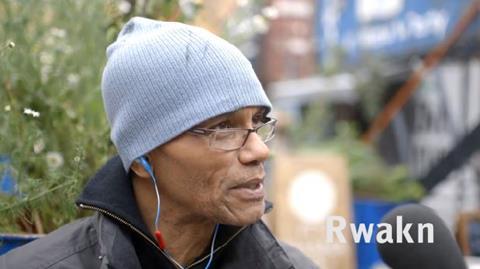
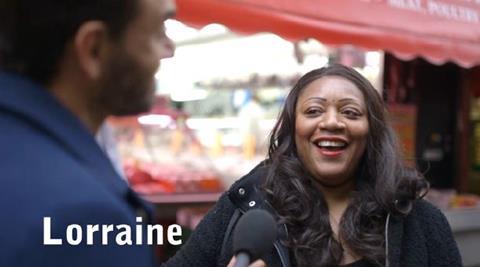














3 Readers' comments